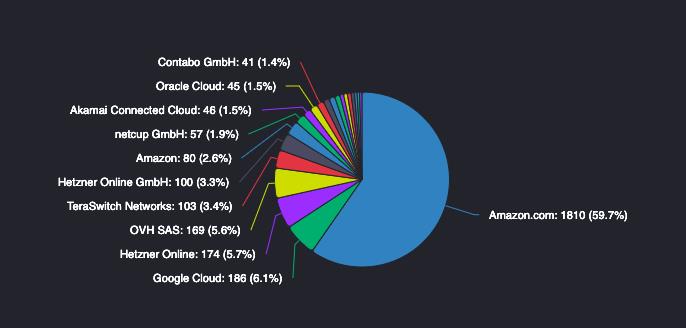
Ethereum Nodes Centralization Poses Major Threat
The centralization of nodes is a pressing issue for the Ethereum network, warns Vitalik Buterin, co-founder of Ethereum. The majority of active Ethereum nodes are currently operated through centralized providers like Amazon Web Services (AWS), leaving the network vulnerable to a single point of failure.
Addressing Centralization: Vitalik Buterin's Six Key Concerns
Speaking at Korea Blockchain Week, Buterin outlined the need to tackle six key problems to ensure Ethereum remains decentralized. Among these, making it easier and more affordable for individuals to run nodes is crucial. Buterin emphasized that this is a crucial aspect of the puzzle in achieving long-term decentralization.

The Importance of Statelessness
Statelessness, a core component of Ethereum's roadmap, plays a significant role in allowing node operators to run Ethereum on modest and inexpensive hardware. By removing reliance on centralized service providers, the network can become truly decentralized. Buterin highlighted that technical challenges related to statelessness may take some time to address fully.
Other Efforts to Combat Centralization
Besides tackling statelessness, Buterin emphasized the importance of making documentation easier, lowering barriers to distributed staking, and improving the security and convenience of staking Ether (ETH) in general.
Priority on Scalability
Although addressing centralization is crucial, Buterin stressed that achieving higher scalability levels is the most time-sensitive concern for Ethereum. Currently, Ethereum scaling protocols heavily rely on zero-knowledge (ZK) rollups, which enhance throughput on the main Ethereum chain by moving computation and state-storage off-chain, creating more efficiency.
Did you miss our previous article...
https://trendinginthenews.com/crypto-currency/micro-bitcoin-mining-devices-offer-transparency-and-accessibility-to-the-industry






